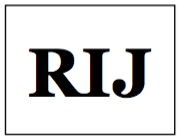
DOL Rule Impacts Far More Than Advisors’ Pay
Already a subscriber? Log in here This article is FREE for you... Create a free account to access this article and get more Retirement Income Journal information sent to you by newsletter. Email Password Or, subscribe now for unlimited access and a free book sent to you! By submitting your email address you agree for... Read more »


